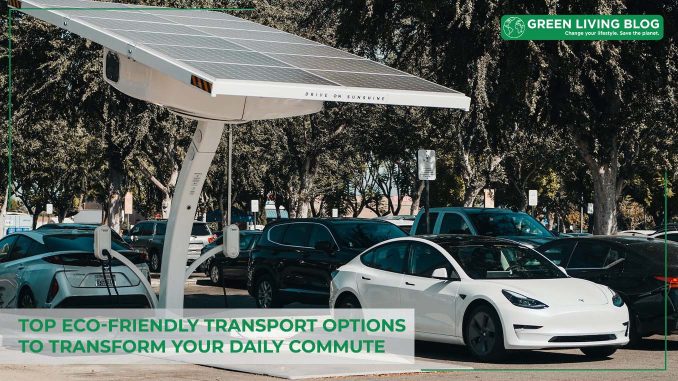
Global warming has been a pressing issue for some time, but despite the warnings of climate scientists around the world, not enough has been done to curb the advancement of an existential threat to our planet.
The result has been increasingly tangible impacts on communities around the globe, and even on our doorstep with more frequent heatwaves in the UK.
Going green has never been so important. The UK government is taking steps towards a carbon net-zero society, but what steps can you take in the shorter term to reduce your own carbon footprint?
Your daily commute could be your biggest contributor to greenhouse gases; how could you change this?
Two Wheels

The simplest and most common way in which you can switch your commute to an eco-friendlier option is to trade up your four-wheeled transport solution for a two-wheeled one. Commuters have been decimating their carbon footprint like this for decades upon decades, and with the UK government taking certain kinds of urban infrastructure more seriously than before, the solution has become more viable than ever. We are talking, of course, about cycling.
A second-hand road bike is extremely inexpensive, and very effective at getting you from A to B in short order. But road bikes are not the only kind of two-wheeled transport available; other kinds of bike exist to provide different levels of speed and comfort, while the e-scooter has fast emerged as a fun and low-effort way to get around without any hassle.
Of course, travelling on two wheels can be a dangerous thing, whichever way you look at it. On a bike you are relatively unprotected which leaves you vulnerable to other vehicles on the road, and there are occasional chances of losing control. If you suffer a road traffic accident through no fault your own you could make a claim in the event of an injury, but of course it is better to do what you can to avoid physical harm. No matter the season, you should wear protective gear and reflective clothing to safeguard against injury on the road.
Two Feet

For many of you, though, the bike is not a necessary alternative. Lots of commuters live within walking distance of their office, which enables them to travel on foot and create no emissions whatsoever in the process.
Walking has more than just an environmental benefit, too. It can also have immense mental and physical benefits, giving your space in the morning to align your thinking, and space on your way home to decompress after a stressful day. Walking is essentially cardiovascular exercise, keeping your heart and lungs healthy as ever.
EVs

Earlier, there was brief mention of the rising phenomenon that is the e-scooter. E-scooters are fun for pootling around on, but not the answer for especially long commutes where car travel cannot be gainfully replaced. But e-scooters are a symptom of a new age in transport, as electric motor technology continues to move from strength to strength.
Today, the electric vehicle (EV) industry is the strongest it has ever been, with new models of EV going toe-to-toe with the best performing gas-guzzlers. The humble EV could be the key to bringing your daily commute to the 21st century with electric cars becoming more affordable and widespread with more charging stations available.
Whichever green transport option is most suitable for you, it can help you reduce your carbon footprint on your daily commute, even if you just use it where possible.
![]()
Author Profile

- Eco Warrior by day, Eco Blogger by night trying to get the eco balance right.
Latest entries
 EnvironmentJuly 9, 2025Does Double Glazing Help Increase Your EPC Rating?
EnvironmentJuly 9, 2025Does Double Glazing Help Increase Your EPC Rating? Green LivingJune 30, 2025Herbal Tea for Insomnia: Your Guide to Natural, Sustainable Sleep Solutions
Green LivingJune 30, 2025Herbal Tea for Insomnia: Your Guide to Natural, Sustainable Sleep Solutions EnvironmentJune 24, 2025What are the most energy-efficient Home Upgrades in 2025?
EnvironmentJune 24, 2025What are the most energy-efficient Home Upgrades in 2025? EnvironmentJune 23, 2025Eco-Friendly Paper Straws: A Small Switch That Speaks Volumes for your Brand
EnvironmentJune 23, 2025Eco-Friendly Paper Straws: A Small Switch That Speaks Volumes for your Brand





Leave a Reply
You must be logged in to post a comment.